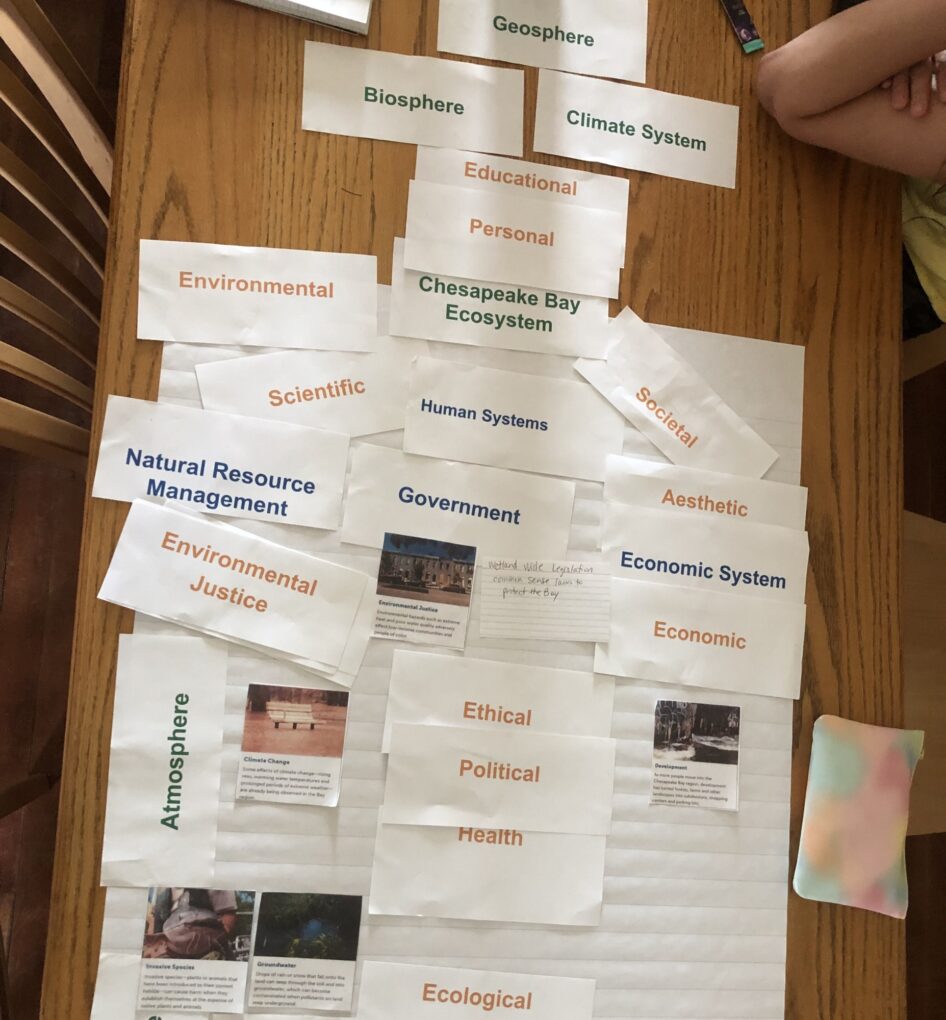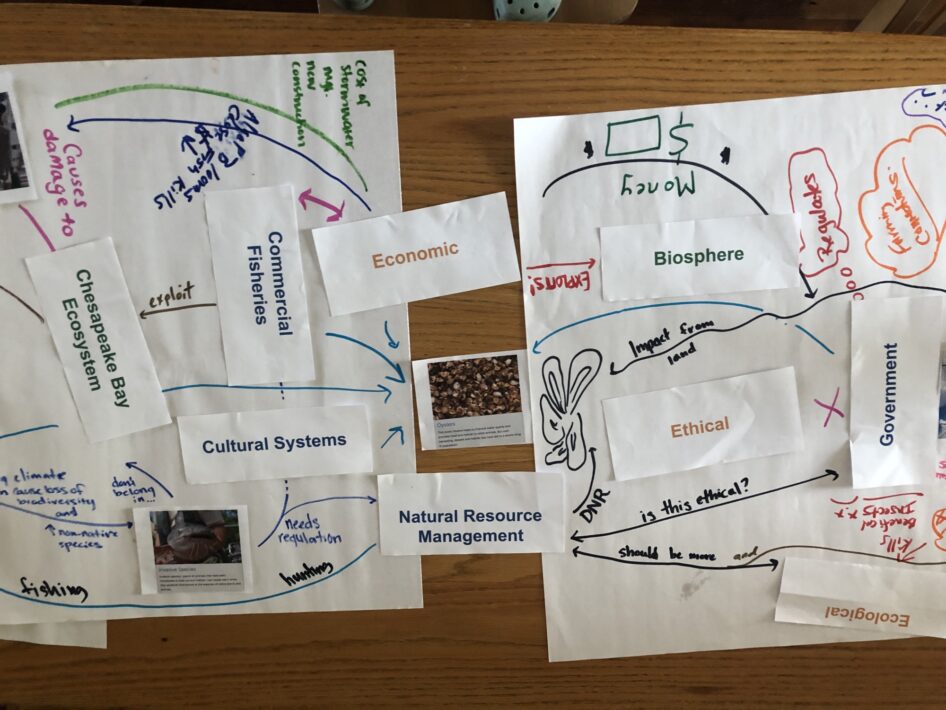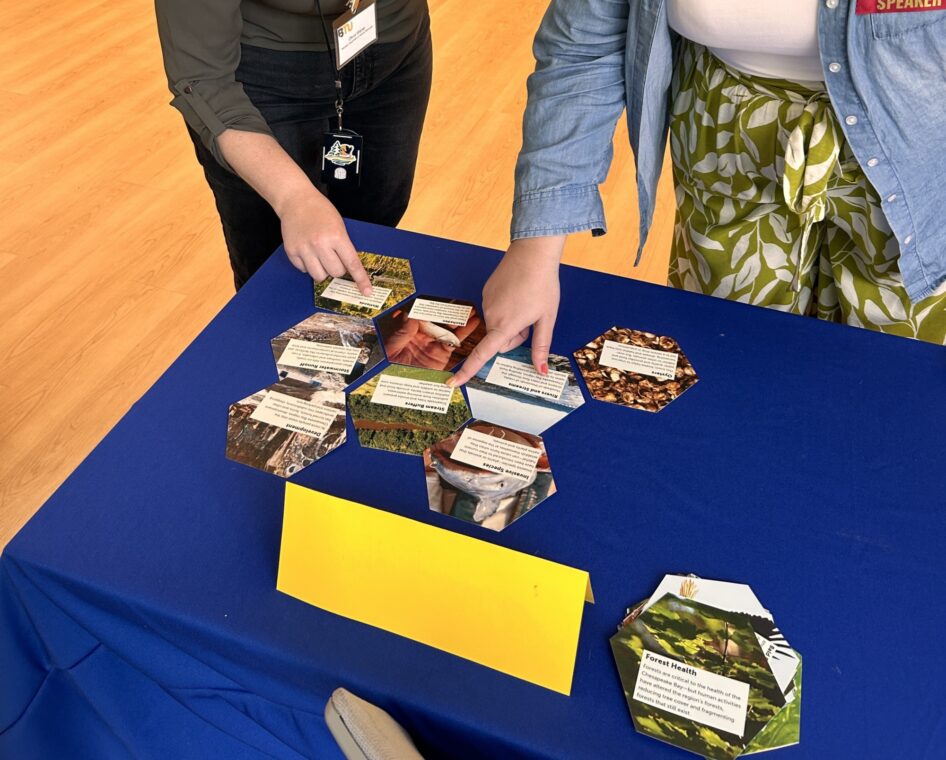Snackpack: Activities to explore local environmental issues

Welcome to the first Bay Backpack Snackpack! These short and sweet blog posts will highlight resources to support MWEE planning, implementation, and training.
One of the first steps in designing a MWEE is learning about the local environmental issues students could investigate. Understanding a variety of environmental issues will help educators craft the Driving Question that best supports their curriculum, encourages outdoor learning, and has opportunities for action.
Students benefit from knowing about the different environmental issues within their community. Even if the MWEE’s Driving Question focuses on just one issue, that issue is impacted by the natural and human components found in their local watershed. Understanding how these components interact with each other encourages systems thinking which can help students better design questions and action projects that uncover and address the root causes of the issue.
Educator and Student Activities
These two activities use the Chesapeake Bay Program’s Learn the Issues page to explore potential local environmental issues and spark conversations on how they are all connected. Both activities can be used with educators or students in middle and high school. The linked activities include more detailed instructions.
Activity 1: Exploring Local Issues

Exploring Local Issues: Connecting issue cards with descriptors
The Exploring Local Issues activity takes at least 45 minutes. This open-ended activity encourages learners to connect environmental issues to each other and the Natural Systems, Human Systems, and Values that affect issues. Learners can arrange and rearrange cards and terms, connecting them with arrows and descriptions on paper or a whiteboard.
Activity 2: Connecting the Hexagons

Connecting the Hexagons: Organizing issue cards based on connections
The Connecting the Hexagons activity can be completed within 30 minutes. Names and descriptions of environmental issues are on hexagon shaped cards. Learners lay down one issue at a time and explain how that issue is connected to or impacted by the issue cards it touches. In the end, a hive of interconnected issues will be created. The possible arrangements are endless!
